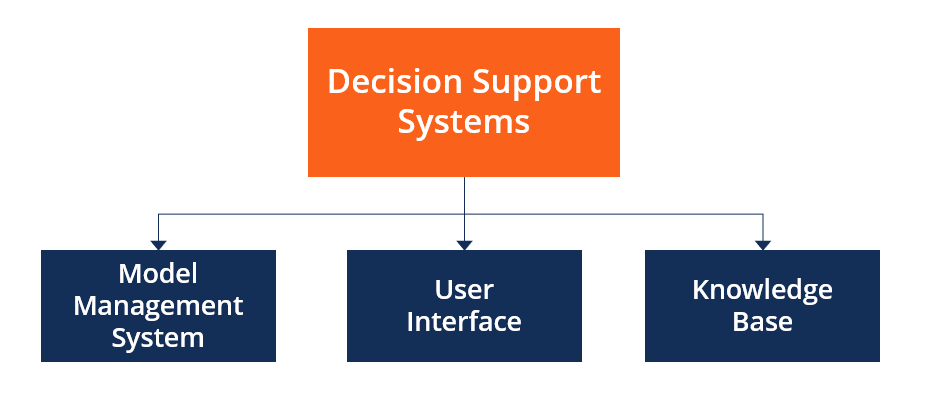
Over 2 million + professionals use CFI to learn accounting, financial analysis, modeling and more. Unlock the essentials of corporate finance with our free resources and get an exclusive sneak peek at the first module of each course. Start Free
A decision support system (DSS) is an information system that aids a business in decision-making activities that require judgment, determination, and a sequence of actions.
The information system assists the mid- and high-level management of an organization by analyzing huge volumes of unstructured data and accumulating information that can help solve problems and help in decision-making. A DSS is either human-powered, automated, or a combination of both.

A decision support system produces detailed information reports by gathering and analyzing data. Hence, a DSS is different from a normal operations application, whose goal is to collect data and not analyze it.
In an organization, a DSS is used by the planning departments – such as the operations department – which collects data and creates a report that can be used by managers for decision-making. Mainly, a DSS is used in sales projection, for inventory and operations-related data, and to present information to customers in an easy-to-understand manner.
Theoretically, a DSS can be employed in various knowledge domains from an organization to forest management and the medical field. One of the main applications of a DSS in an organization is real-time reporting. It can be very helpful for organizations that take part in just-in-time (JIT) inventory management.
In a JIT inventory system, the organization requires real-time data of their inventory levels to place orders “just in time” to prevent delays in production and cause a negative domino effect. Therefore, a DSS is more tailored to the individual or organization making the decision than a traditional system.
The three main components of a DSS framework are:
The model management system S=stores models that managers can use in their decision-making. The models are used in decision-making regarding the financial health of the organization and forecasting demand for a good or service.
The user interface includes tools that help the end-user of a DSS to navigate through the system.
The knowledge base includes information from internal sources (information collected in a transaction process system) and external sources (newspapers and online databases).

Thank you for reading CFI’s guide on Decision Support System (DSS). To keep advancing your career, the additional CFI resources below will be useful:
Master financial modeling and improve your proficiency across the entire accounting and finance universe